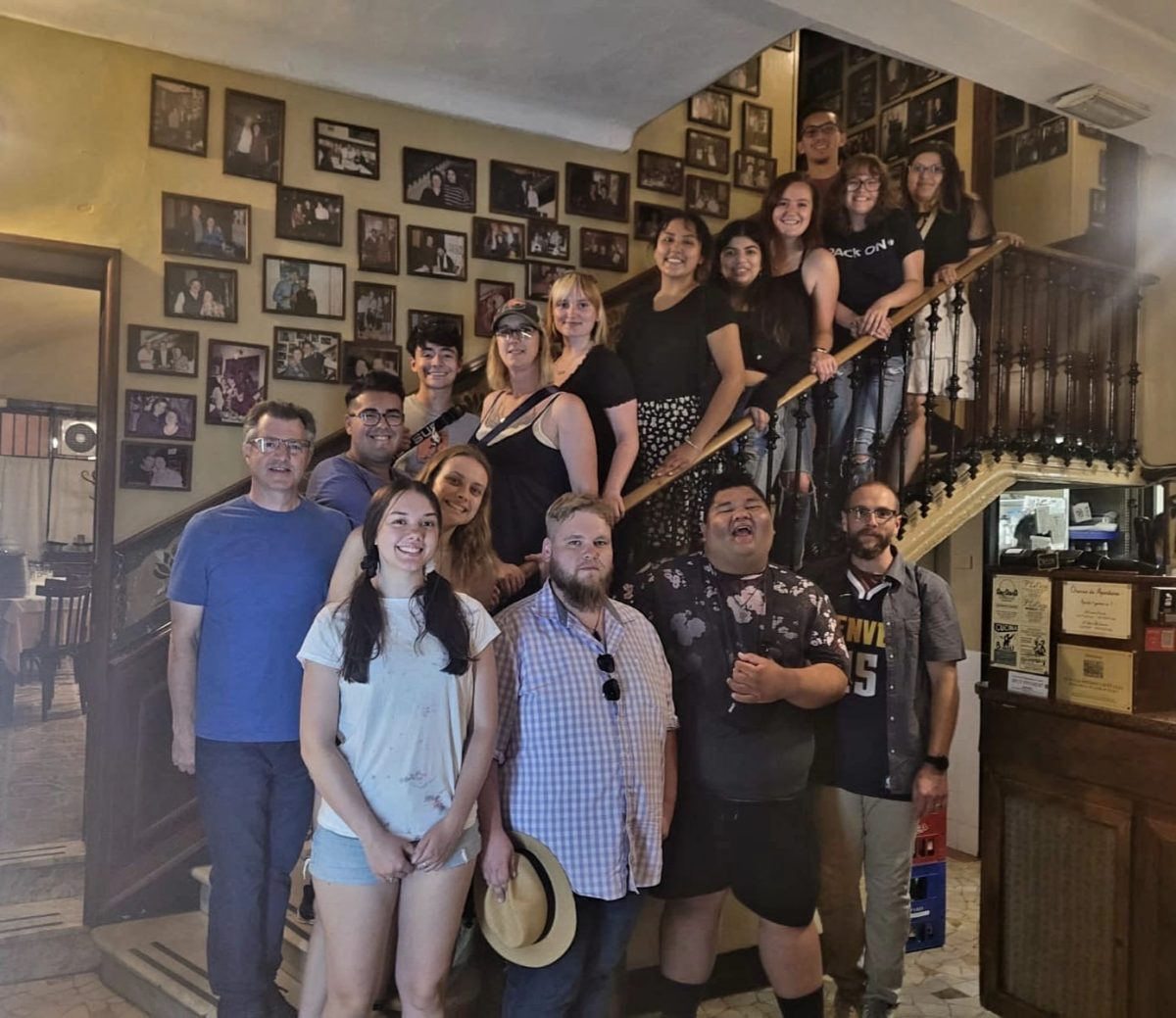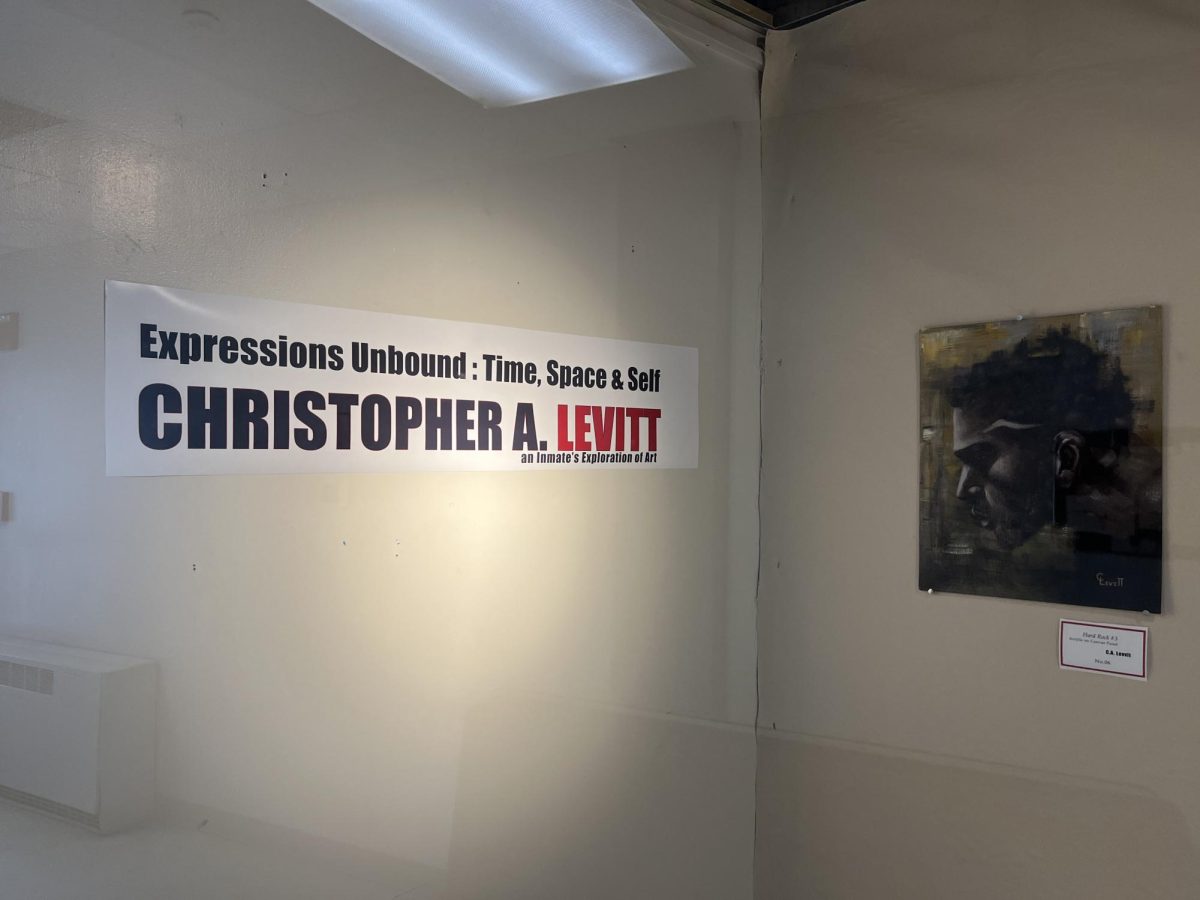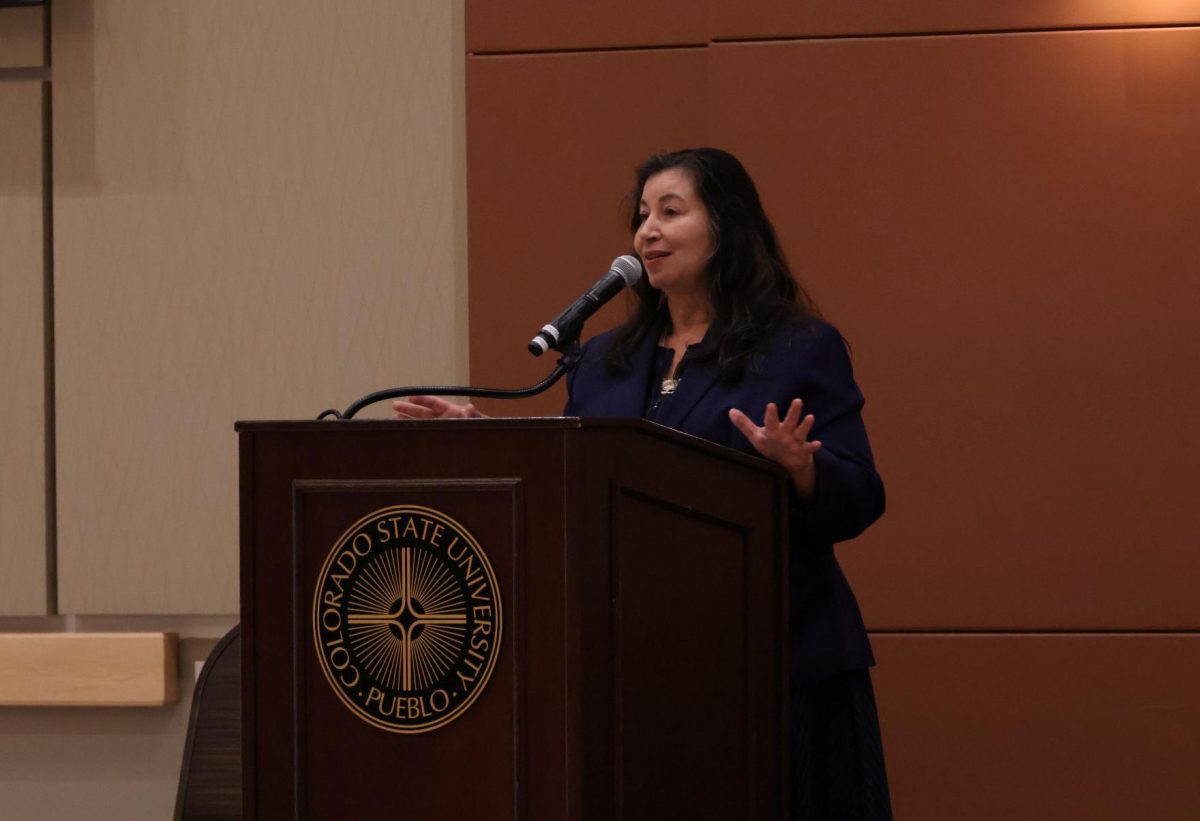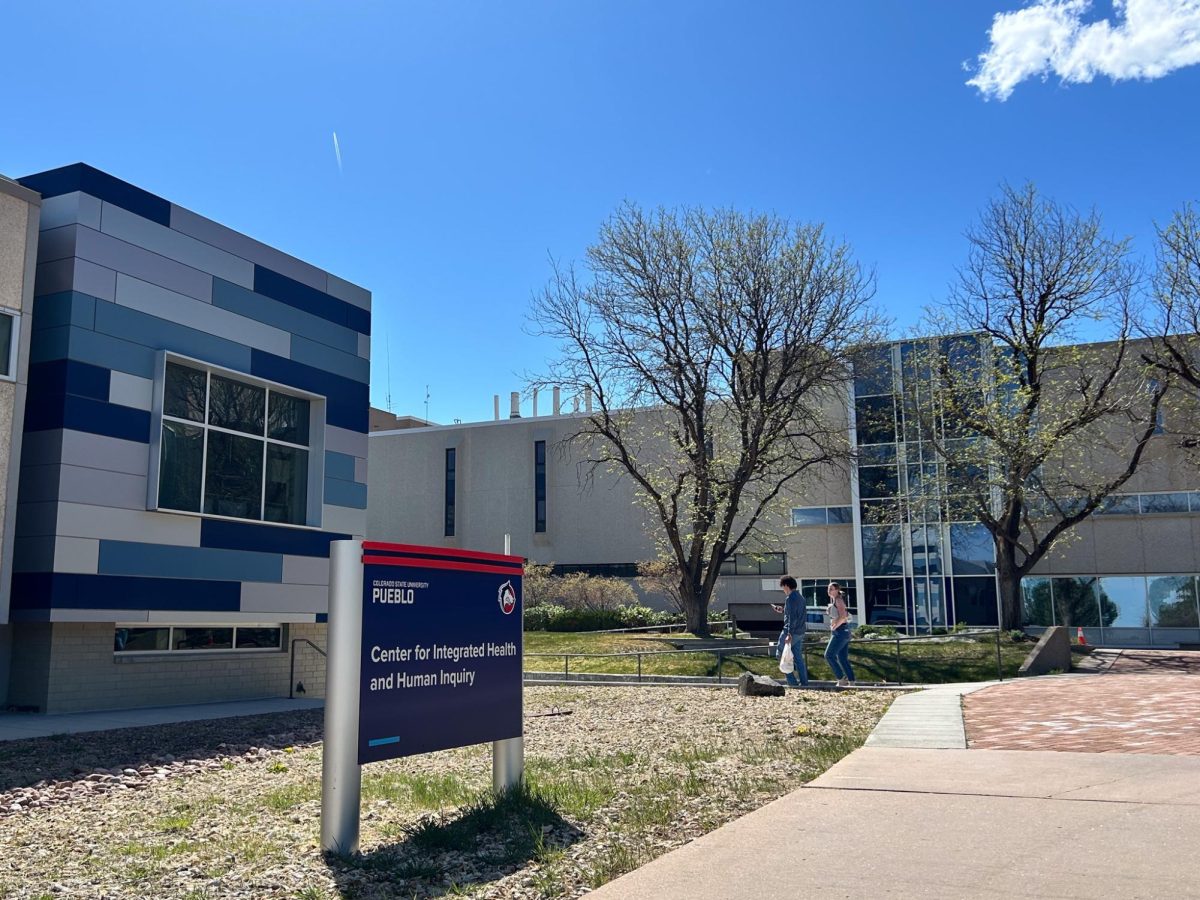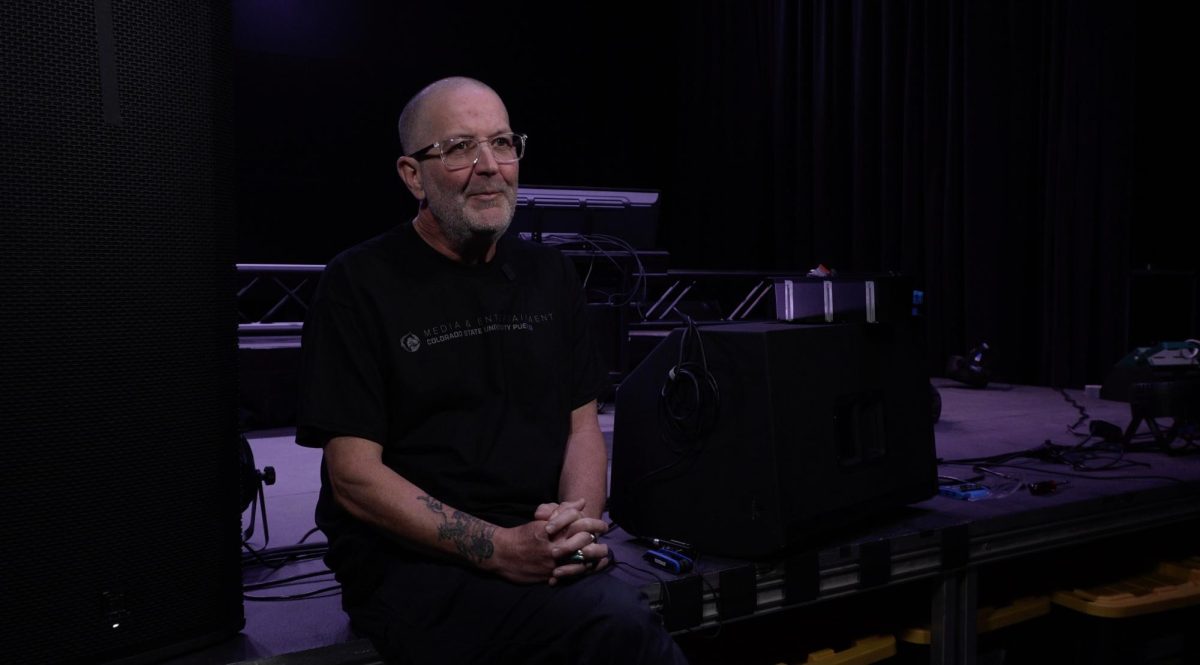
Campus, partners celebrate program as ‘transportation epicenter of the Southwest’
By: Hailee Langowski
On Thursday morning, outside the Occhiato Student Center on the Patio, Colorado State University Pueblo unveiled the Southern Colorado Institute of Transportation Technology (SCITT), a new, innovative institute. An initiative of SCITT is to support research into, and the expansion and development of, transportation infrastructure throughout the 21st century.
The institute intends to research fundamental topics relating to the challenges and opportunities the state’s transportation system presents. It has been tasked with conducting research relevant to the safety, security and innovation of railroad, ground and intermodal transportation. In addition to supporting governmental and academic research on surface transportation, the institute will serve as a financial resource for Colorado businesses engaged in the research and development of transportation technology.
Dr. Timothy Mottet, president of CSU Pueblo, said the university’s establishment of the School of Engineering within a new college of Science, Technology, Engineering, and Math (STEM) makes this a perfect time to advance experiential learning opportunities that prepare students for their careers. SCITT will support the drive for the economic development of Pueblo, Southern Colorado and throughout the U.S.
He said, “Our university is committed to growing and recruiting industries that will create jobs in Pueblo and beyond.”
The Center for Surface Transportation Testing and Academic Research (C-STTAR), managed by ENSCO, Inc., has tasked several educational institutions, one of which is CSU Pueblo, with the mission of finding solutions to integrated surface transportation issues that exist across the country. The Federal Railroad Administration selected ENSCO as the primary contractor responsible for operations, research, testing and training activities for the Transportation Technology Center (TTC).
CSU Pueblo and the new institute will work in conjunction with eight other research universities, including the University of Hawaii, Michigan State University, the University of Nebraska-Lincoln and Oregon State University, to investigate the shortcomings in the existing infrastructure and develop transportation systems that can meet the demands of the future.
Dr. Mottet explained Pueblo is uniquely located as the transportation epicenter of the Southwest, as it is home to the test track commonly known as the Transportation Testing Center (TTC). CSU Pueblo, with innovative programming, will bring solutions to the issues of the modern world, such as the rise in population and climate change.

I am committed to making this institute a versatile and responsive leader in education, training and research that support transformative transportation solutions.
– Dr. Md Rashad Islam
Beginning this year, ENSCO will provide research and development, testing and training services at the TTC.
Ruben Peña is a CSU Pueblo alumnus, a supporter of the Pueblo community and director of marketing and business development with ENSCO. He said it was important for ENSCO to establish a close relationship between the TTC, the local community and the citizens of Pueblo.
Peña explained, “This new center will help retain students by offering opportunities to work on new and existing transportation issues … by offering the market applicable experience in this great community of Pueblo, which has become a hub of Colorado and the U.S.A.”
Dr. Mohamed Abdelrahman, the immediate past provost and executive vice president at CSU Pueblo, said SCITT would prepare students for the exciting new world of transportation. He said CSU Pueblo’s collaborations and innovations to go beyond STEM, integrating business and the social sciences.
“Over the next few years, CSU Pueblo will capitalize on SCITT as a platform for creating innovative degrees and connecting existing programs, faculty and students to this new interdisciplinary world of transportation,” Abdelrahman said.
In addition to the other announcements made on Thursday, the institution presented Dr. Md Rashad Islam as the institute’s first director. He is an associate professor in the School of Engineering and a professional civil engineer, who received several honors and awards during his academic and professional career. He graduated from the University of New Mexico in Albuquerque, earning his Ph.D. in civil (transportation) engineering.
Islam said he intends for SCITT to conduct research and provide initiative services to enhance the safe and efficient mobility of people and goods while preserving the environment.
He said the institution would: “Educate people to invent new technology and publicly disseminate transportation knowledge. … I am committed to making this institute a versatile and responsive leader in education, training and research that support transformative transportation solutions.”
“I am promising that this institute will always be at your side for any transportation innovation training and research,” Islam concluded. “Thank you for supporting our transportation institute.”
See related content: Governor Polis visits Colorado State University Pueblo




![CSU Pueblo President Dr. Timothy Mottet speaks to a standing-room-only crowd about the new Southern Colorado Institute of Transportation Technology Thursday, July 7, on the Patio at the Occhiato Student Center. [Today photo/Cassime Joseph]](https://socostudentmedia.com/wp-content/uploads/2022/07/SCITT-conference-3-CJ-scaled-1-1200x900.jpg)

